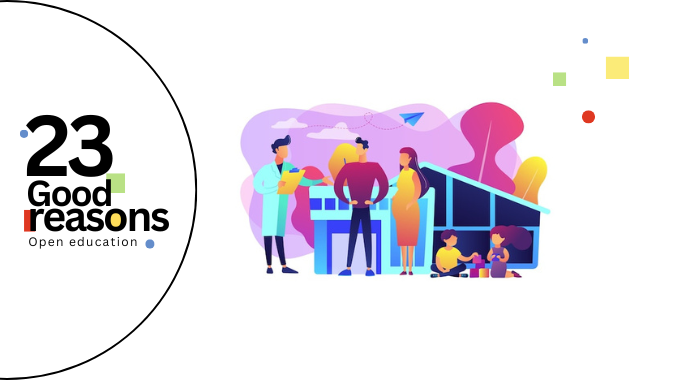Category: Event
-

Assess fairly
In today’s entry to the 23 good reasons for Open Education series, Lilia Cheniti argues in favour of open assessment. She has explored a variety of open schemes and explains here how to go open for assessment. Lilia teaches at Sousse University, Tunisia and represents her university in the UNOE UNITWIN network.
-

Deal with agency issues
In today’s entry to the 23 good reasons for Open Education series, Dorothy Laubscher explains how open practices allow agency to be exercised. And Dorothy advocates that this is particularly important in the Global South. Dorothy holds the UNESCO Chair on Multimodal Learning and OER at North-West University, in South Africa.
-

Build a sustainable education system
In today’s entry to the 23 good reasons for Open Education series, Javiera Atenas reflects on what a sustainable educational system could be like. This leads her to take a holistic approach and Javiera covers here the entire spectrum of openness. Born in Chile and having worked in Spain and Germany, today, Javiera is a…
-

Incentivize original thinking
In today’s entry to the 23 good reasons for Open Education series, Djaine Damiati, Débora Sebriam and Isabela Campos Menezes give us a historical background to creative thinking and argue that open education gives the right setting for this to happen. Djaine Damiati, Débora Sebriam and Isabela Campos Menezes are researchers at the Universidade Nacional…
-

Contribute to public service
In today’s entry to the 23 good reasons for Open Education series, Pierre-Antoine Gourraud defends the idea that open education is in the benefit of public service. He also remarks that open educators accept to lose control: and this is indeed an essential component of their success. Pierre-Antoine is a Doctor and a Professor at…
-

Sharing knowledge
In today’s entry to the 23 good reasons for Open Education series, Benedetta Calonaci explores perhaps the most fundamental reason for which we open education: the desire to share knowledge. Sharing never is easy. But open educators believe it is the right goal. Benedetta is a librarian at Università di Firenze (Italy).
-

Recognize teachers’ work
In today’s entry to the 23 good reasons for Open Education series, Anne-Catherine Baseilhac discusses the ways in which Open Educational Practices can contribute to teachers recognition. Anne-Catherine leads the Nantes Université (France) Fabrique REL (“OER Factory”), and is an enthusiastic promoter and disseminator of Open Educational Resources.
-

Incentivize collaboration
In today’s entry to the 23 good reasons for Open Education series, Collaboration is the key word. Collaboration can take many forms. In this case we are fortunate that Darrion Letendre and Robert Lawson from NorQuest College (Canada) introduce the topic, with a very special perspective.
-

Diminish costs
In today’s entry to the 23 good reasons for Open Education series, Matthieu Cisel relates the question of OER with the emergence of generative AI. Matthieu Cisel is an assistant professor at Cergy Paris University (France), and, after having written a remarkable -and remarked- PhD on MOOCs, is now engaged in visiting the links between…
-

Contribute to the reputation of universities
In today’s entry to the 23 good reasons for Open Education series, Katalin Monzéger lists a number of ways through which Universities can benefit from adopting OER. Katalin observes, for example, that “Regarding the reputation of the institution, OERs can attract further students who can take part in a course or lecture before enrolling”. Katalin…